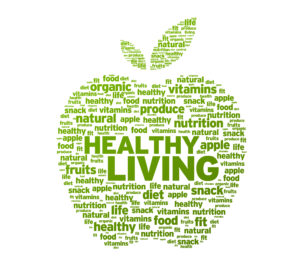When You Consume Preservatives, They Don’t Preserve You Back

By Sondra Rubin, CPA & Healthy Eating Advocate
The role of a parent has changed over time and the changing world has allowed some creative solutions for the working mother and father to feel more satisfied than ever, by working and providing for the family. The provisions are endless from the egg and toast in the morning, to the cold-cut sandwich and salad with croutons and ranch dressing for lunch, and lastly the delicious breaded chicken cutlet, broccoli and potatoes for dinner. What could be wrong with this scenario, the short-cuts of course!
Our busy lifestyles and the mass production of foods have created short-cuts in the kitchen to get food on the table fast, but the price is additives and preservatives. The most popular brand breadcrumbs have hydrogenated oils that cause long term health issues related to heart disease and hormonal imbalances. Cold-cuts are filled with sodium-nitrates which are known to cause gastrointestinal problems, diabetes and cancer (not immediately, of course). Some potentially healthy foods or lunch concepts have turned nutritious foods into a ticking time bomb for our society. In addition, there is very little long term research on what kinds of effects they have on the human body. Yes, they are cheap and they last forever, but your daily bread is filled with preservatives and additives, including “natural” ones. This eating lifestyle is leading people to accept processed foods as a way of life without fully understanding the implications it will have on the future health of our nation.
Some Solutions:
Try to get fresh local organic bread at a farmers market, since they tend to have fewer or no additives. Turn leftovers into breadcrumbs by drying them out.
Try seasoning then, boiling or baking chicken thighs or quarters instead, they can be sliced thin to look just like packaged cold-cuts, when they cool.
In my research for our for this article, I came across an article from the National Academy of Sciences titled, ”Shorter Lives, Poorer Health”¹ which stated
“The United States spends more money on health care than any other country. Yet Americans die sooner and experience more illness than residents in many other countries”.
The new growing culture of organic and natural food supporters are aware of how eating healthier can quickly change some of these statistics. After a recent visit to NY Langone Medical Center in Queens, New York, I experienced first-hand a wave of pharmaceutical sales representatives entering the doctor’s offices to speak with doctors; it looked like open season on a hunting trip. These sales representatives scoured the halls waiting to pounce on a doctor between patients. An examination of the health care systems of 166 nations, ranked the United States number one in spending and number 33 in quality outcomes, placing it among the least efficient systems on the planet, according to the World Health Organization and The Economist Intelligence Unit, in 2014. That same year a professor of evidence based medicine at Bond University (Paul Glaziou) published an article in the National Institute of Health, covering key points on poorly thought through systems of bias non-publication and reporting of pharmaceutical research.
We hope that stricter policy is created to strengthen the collaboration between the researchers and policymakers who set guidelines for fund research; as well those who finance, regulate, and provide health care, so the United States health statistics begin to change in a positive direction. Eat Clean, Drink Clean
If you like this article, please share it with your family and friends and comment below. You can be the voice of change if you ask your local restaurant to offer a menu item that is IM Here verified.
¹ TCC-U_S_Health-Shorter_Lives_Poorer_HealthIOM-1 (1)



